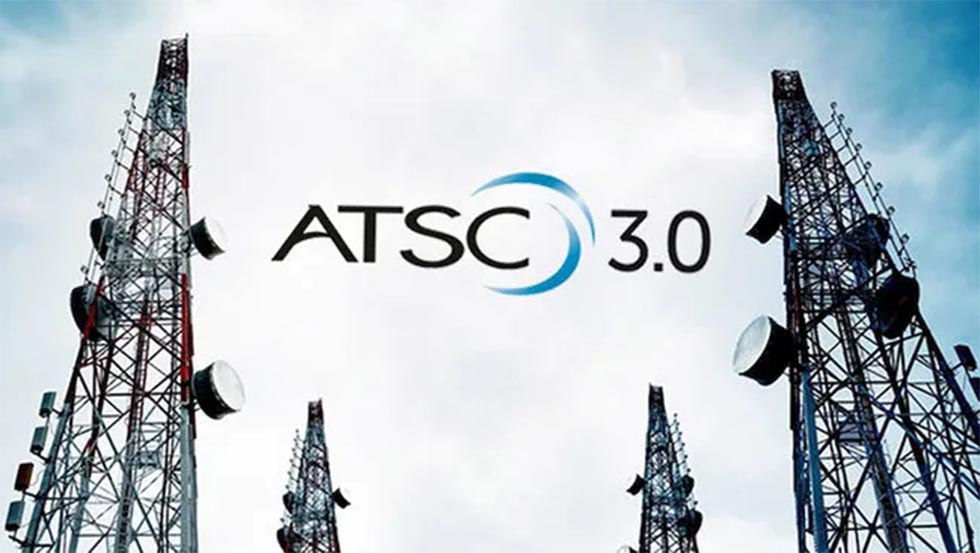Feedback
Broadcast TV industry becoming extinct
Dear editor:
I just received my December issue of Broadcast Engineering and read your editorial with interest. “Perfect storm” seems to almost parallel an article I've started called “Behind bars.” Here is my crude outline. I feel strongly about the direction “traditional” broadcasting is headed.
Confinement
I've spent 40 plus years, my entire engineering vocation, toiling and laboring behind bars. Witnessing more radical revelations within the past few years than all of television broadcasting history since the very beginning, I've come to the convincing conclusion that we are fast approaching extinction of the broadcast television industry. Thankfully, I've served my time.
Black-and-white to color, film to videotape, land-line distribution to satellite, analog to digital and next IPTV … Broadcast television has survived, even thrived, through all these difficult transformations. The near future will likely present the most formidable challenge broadcasters have ever faced.
Death row
The professional video industry's #1 source for news, trends and product and tech information. Sign up below.
The condemned occupants of death row are short-timers and fat targets:
- Terrestrial broadcasting, including transmitters, towers, antennas and all ancillary equipment, will become obsolete as the spectrum becomes repurposed.
- Call letters, a key “branding” element for broadcaster recognition, could go by the wayside.
- Over-the-air (OTA) viewer reception via rooftop antennas, rotors, coax, etc., is in danger.
- Free TV will be gone! A new budget-busting monthly cable or satellite invoice will fill the vacuum.
- Analogous to the “housing bubble,” broadcast property value is largely linked to the FCC license to broadcast and not the facility equipment. Broadcast TV licenses will likely cease to exist. Current broadcast facilities owners may become video information providers, feeding program content via fiber to cable systems, satellite to satellite distributors, podcasts to Internet service providers, or they may simply turn off the equipment and go home.
Redefining broadcast TV will involve a change of mindset. The accepted moral compass, “If you don't have something nice to say, say it often,” must change.
Last wish
I hope that remnants of residual television spectrum remain in the hands of FCC licensed broadcasters and not the highest bidder, etc.
Execution
How imminent is the termination of terrestrial broadcasting?
Leo Demers
The end is near
Dear editor:
I have been involved in building and maintaining broadcast antenna systems for more than 30 years. In response to your December editorial, “Perfect storm,” on the end of OTA TV, I have the following observations:
- The telecoms have been trying to break the broadcasters for a long time, and the Telecom Act of 1996 was the turning point of this assault. It spearheaded the selling of spectrum as a money maker for the federal government.
- Selling off spectrum is a breach of trust with the government. Their role is to protect our resources, not cash them in. If the loggers were let into the national parks, the greens would be livid, but spectrum is not a visible resource to most citizens.
- The last big spectrum sale led to the current state of the cellular build-out. Zoning for the sites then became a major issue, and the feds were called on by the winning bidders to intervene with the local regulations. One response was to lease out land at the local post offices for cell sites. At this time, the cell sites are full, so more towers — around 100,000 — will be needed. This current thinking will lead to more federal control of local issues, so it is really a power grab and a budget short fall repair. It's a win-win for the federal government, and a lose-lose for the states and citizens (except for having an IP address on the fridge so it can e-mail you to get more milk).
- If this trend continues, I guess the new EAS message will be: “Citizen, you are in danger! To hear this full message, swipe your credit card now!”
- Lastly, the end of OTA would remove the lever that the elected folks now have for access to the public. No more minimum base rate spots, and no more interruption of prime-time for a message from the Big Giant Head.
We need to do what we can to support our customers, the broadcasters.
Richard Wood
President, Resonant Results
